HR Policy’s Future Workplace Policy Council Mid-Year Labor and Employment Conference featured discussions from NLRB General Counsel Jennifer Abruzzo, EEOC Vice Chair Jocelyn Samuels and Commissioner Janet Dhillon, and other leading labor and employment voices. Discussions included employee speech, card check, artificial intelligence, human capital metrics reporting, and other issues, highlighting the variety of impending issues significant to employers.
NLRB General Counsel Abruzzo addresses employee speech, interagency cooperation, and mandatory meetings: The General Counsel gave employers insights into her ambitious agenda for the Board, saying she seeks to move the Board to protect, as much as possible, the exercise of workers to freely associate with one another to protect their working circumstances.
- Protected concerted activity: General Counsel Abruzzo contended that employee speech on critical issues, including those political and/or social in nature, is inherently collective action as it is likely to spawn more concerted action. This view encompasses wearing buttons and other visible expressions of employees’ political or social views in the workplace.
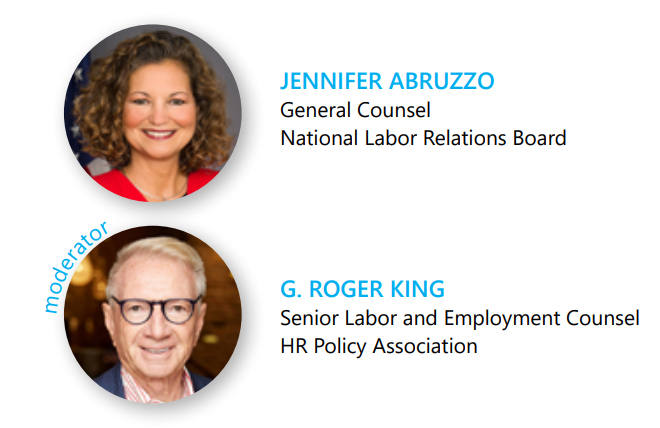
- “All of government approach”: The General Counsel noted the federal government is taking an “all-of-government approach” to labor and employment law violations. She said a violation under one statute may indicate that there are violations under other statutes, prompting greater information sharing and coordinated enforcement efforts by federal agencies.
- “Captive audience” meetings: The issue, General Counsel Abruzzo indicated, of employer-held meetings on issues with intersections with labor concerns is the involuntary aspect of such meetings. She maintained that as long as employees are aware such meetings are voluntary, they don’t have to attend, and that they may leave at any point, an employer may hold them. She further clarified that requiring meetings to discuss safety issues would not trigger a violation of the NLRA.
Labor law experts, company representatives react, examine realities of new labor environment: Following General Counsel Abruzzo’s discussion, respective panels of labor law experts and HR Policy members gave their perspectives on the changing legal environment and the shifting nature of organization efforts. The panels explored the implications for employers of the developments Abruzzo noted, discussing card check and prohibitions on mandatory meetings in particular. HR Policy members followed this discussion with insights on how the employee relations playbook must change to better service employees in an environment when union organizing is often an organic, social-media driven phenomenon initiated by employees rather than a traditional union-driven process.
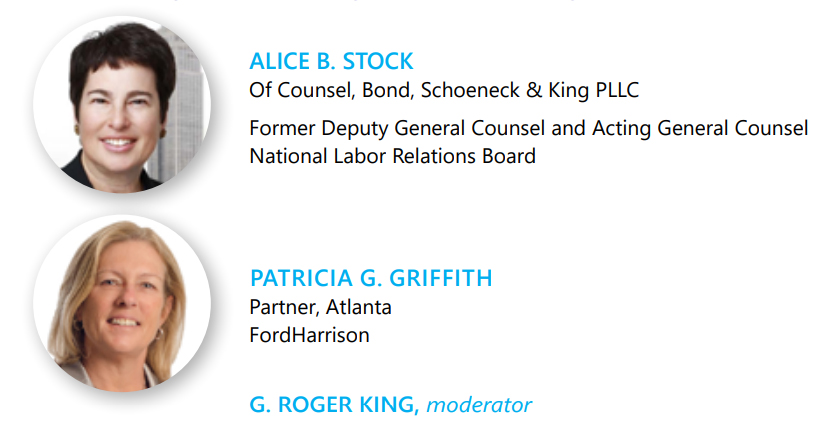
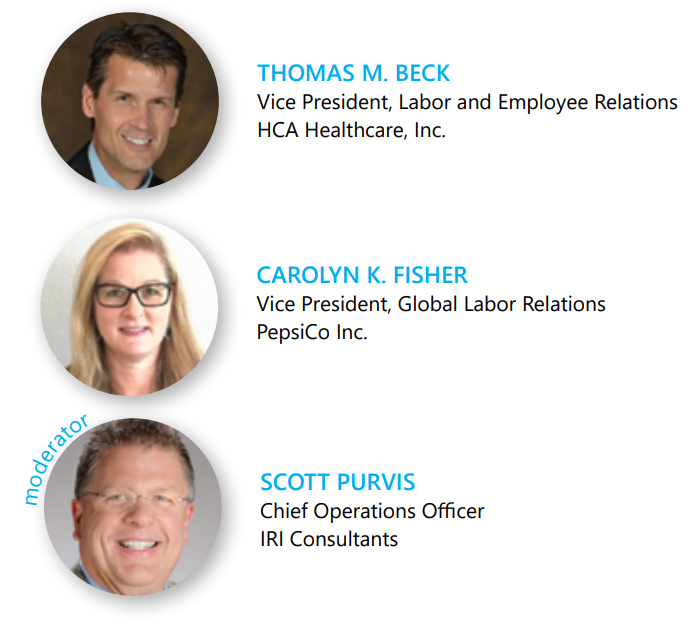
HR Policy staff, member company representatives explore oncoming avalanche of regulatory activity: Employers can expect proposed rulemakings this year on human capital metrics disclosures, the overtime threshold under the FLSA, joint employer, employee classification, and other issues. A panel of HR Policy Staff and member company voices discussed what we can expect at this point, and what the implications for companies will be. The panel also covered pending legislation on labor issues, including amendments adding card check and mandatory arbitration provisions to the otherwise non-labor focused America COMPETES Act.
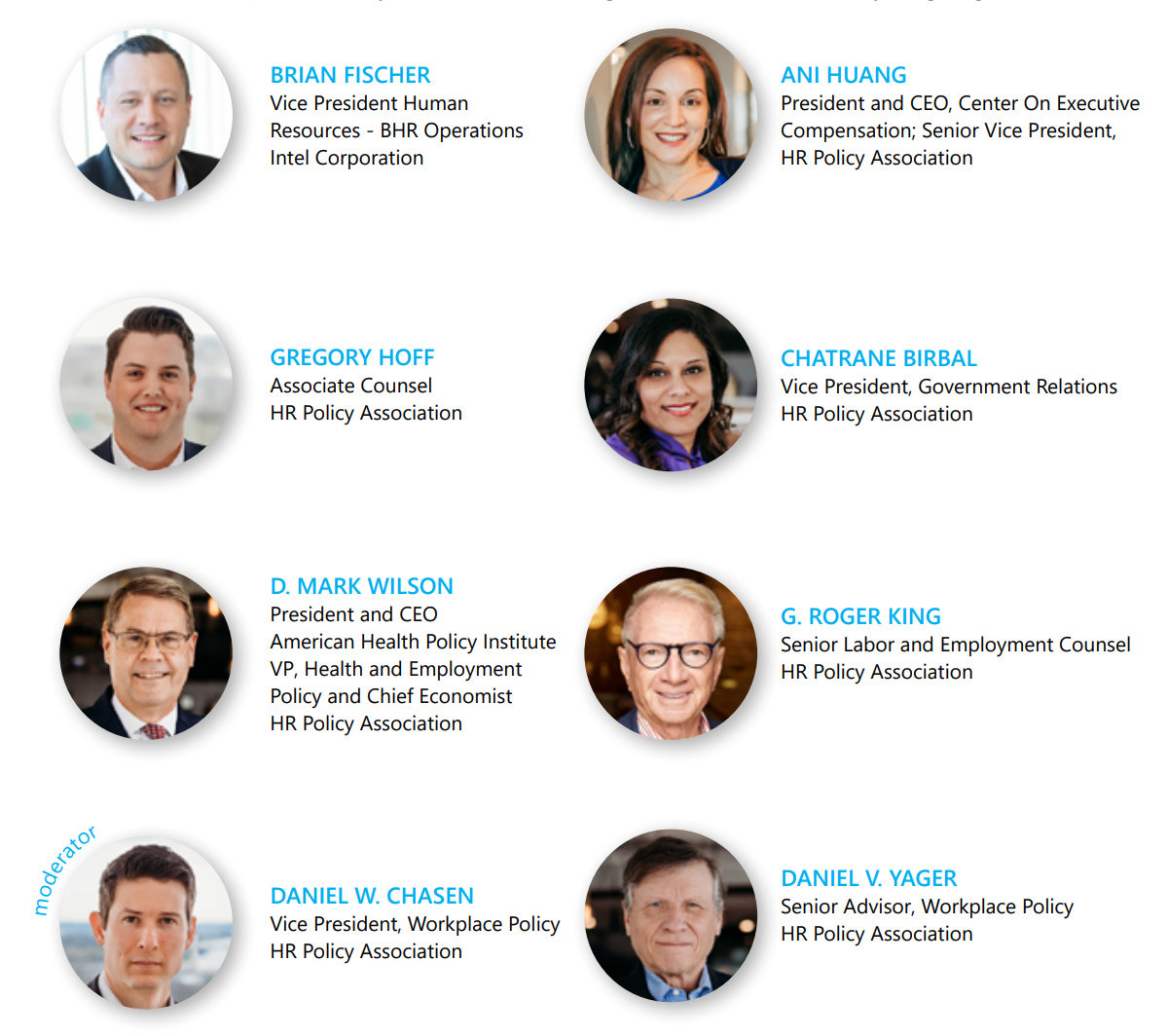
Establishing trust emerges as central priority in panel exploring, AI, data privacy, and new horizon of policies impacting HR: Rachel See, Senior Counsel, AI and Algorithmic Bias with Commissioner Keith Sonderling's office at the EEOC, joined the Council to provide comments on new technical assistance by the EEOC on employers’ use of AI and compliance with the Americans with Disabilities Act.
The panel then delved into the chief challenges and policy concerns related to the adoption of relatively novel technologies, including privacy concerns regarding employee monitoring and discrimination pitfalls. The reaction at all levels of government, panelists noted, has been sweeping, if in their nascent stages, with both hopeful and deeply concerning measures being considered at the state and federal levels. At the center of this dynamic field is establishing trust with all stakeholders, especially employees, in the use of HR technologies, through both thoughtful policy and employer practices.
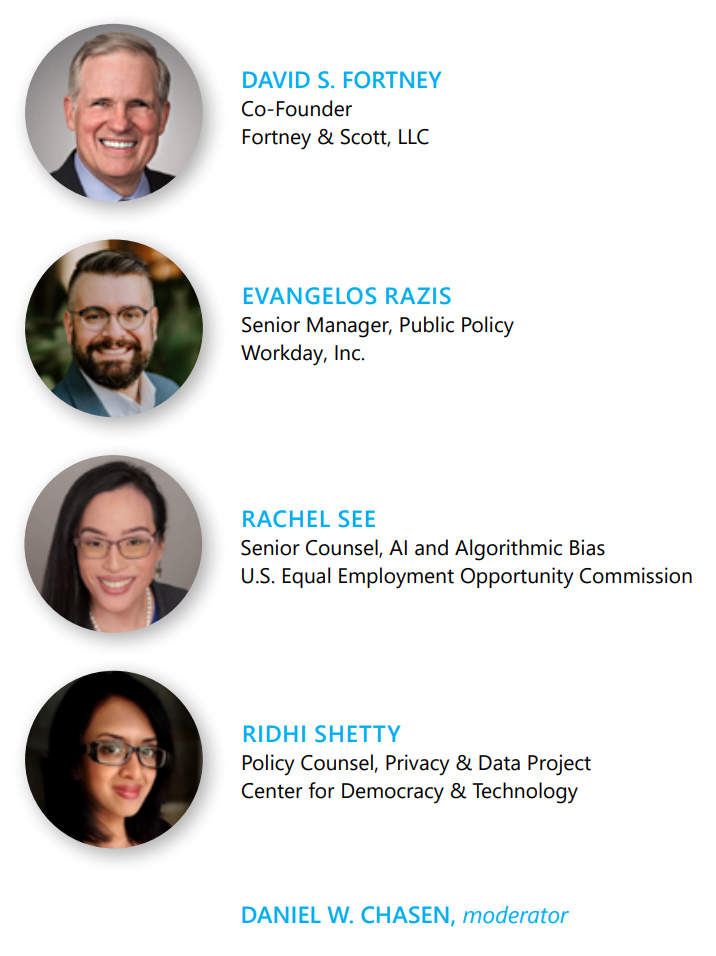
EEOC Vice Chair Samuels, Commissioner Dhillon discuss upcoming guidance, EEO-1 pay data reporting, retaliation, and other issues: The Commissioners looked ahead to an ambitious agenda for the next several years, with a focus on several key areas.
- EEO-1 pay data reporting: The Commissioners noted they anticipate the upcoming report from the National Academies of Sciences designed to evaluate the utility of data previously gathered. Such data, Commissioner Samuels noted, cannot be used to provide a statistical case of pay discrimination based on the broad job descriptions and pay bands, but may serve as an early warning system. Commissioner Dhillon noted that the categories were put into place decades ago, and are perhaps ripe for review, particularly in the job descriptions area.
- Harassment guidance upcoming: The Commissioners noted they are seeking to issue updated guidance on sexual harassment for notice and comment in order to assist employers to get out in front of the law and create workplaces free of harassment.
- Retaliation: In a joint arrangement with the NLRB and DOL, the EEOC has launched an initiative on retaliation, and is seeking greater understanding of what retaliation in the workplace looks like. The Commission expects to conduct further roundtables on the effort.
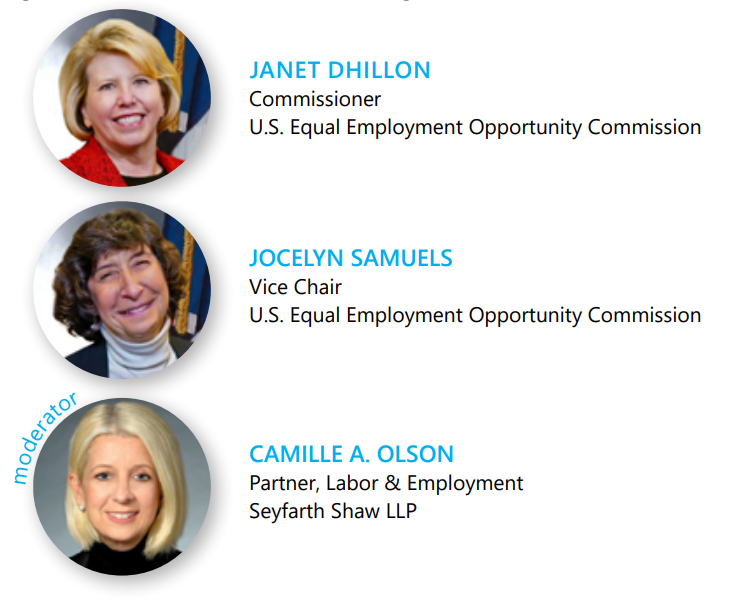
Bringing it all together- discussing the day’s takeaways from the purview of the CHRO: HR Policy Senior Vice President Shelly Carlin, former CHRO at Motorola Solutions, and Chuck Columbus, former CHRO at Kaiser Permanente, brought the day’s discussions into focus with an examination of the intersections of policy with global trends of employee voice and expectations impacting workplaces.
Their conversation highlighted employees’ preferences for purpose at work, and expectation to have access to corporate strategy—and have their voices be heard. At the baseline of all of this is the necessity of establishing trust with employees, facilitating authentic relationships between employers and managers that is responsive to employee expectations.
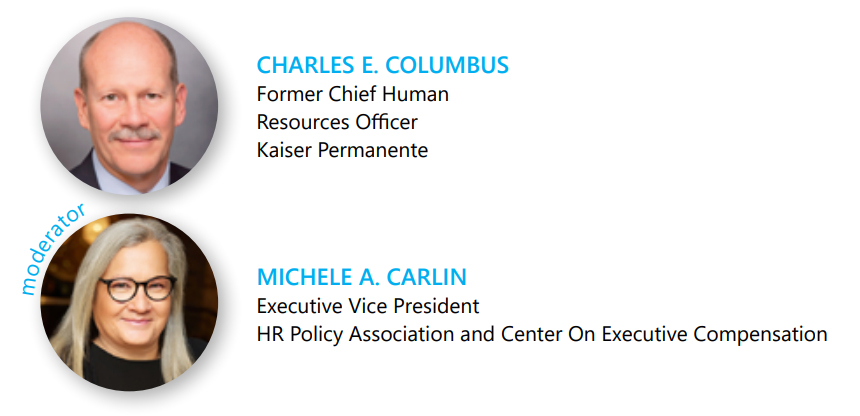

Daniel W. Chasen
Deputy Director of Labor Policy, U.S. Senate Committee on Health, Education, Labor and Pensions
LinkedIn